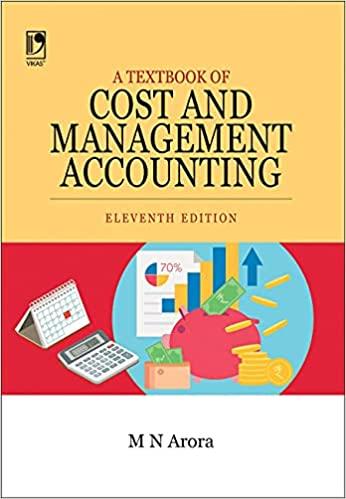Question
1. Significant deficiencies are matters that come to an auditor's attention that should be communicated to an entity's audit committee because they represent: A. Disclosures
1. Significant deficiencies are matters that come to an auditor's attention that should be communicated to an entity's audit committee because they represent:
A. Disclosures of information that significantly contradict the auditor's going concern assumption.
B. Material fraud or illegal acts perpetrated by high-level management.
C. Deficiencies in the design of controls or failures in the operation of internal controls.
D. Manipulation or falsification of accounting records or documents from which financial statements are prepared.
2. A control is deemed to be more important than thought at the time that attributes sampling parameters were set. The auditor is most likely to respond by:
A. decreasing the risk of assessing control risk too high.
B. decreasing the tolerable deviation rate.
C. decreasing the expected deviation rate.
D. increasing population size.
3. If the expected deviation rate exceeds the tolerable deviation rate, the auditor is most likely to:
A. Set control risk at the minimum without sampling.
B. Set control risk at the maximum without sampling.
C. Have a large sample size.
D. Pick a lower risk of assessing control risk too low to increase sample size.
4. If auditors conducting attributes sampling found that the entity deviated from a prescribed control in nine of the first 10 items examined, the auditor is most likely to:
A. increase the computed upper deviation rate.
B. stop the test and increase control risk.
C. increase sample size.
D. decrease the tolerable deviation rate.
5. A public entity changed from the straight-line method to the declining balance method of depreciation for all newly acquired assets. This change has no material effect on the current years financial statements but is reasonably certain to have a substantial effect in later years. The clients financial statements contain no material misstatements and the auditor concurs that this change is justified. If the change is disclosed in the notes to the financial statements, the auditor should issue a report with a(n):
A. adverse opinion.
B. unqualified opinion.
C. except for, qualified opinion.
D. consistency modification.
Step by Step Solution
There are 3 Steps involved in it
Step: 1

Get Instant Access to Expert-Tailored Solutions
See step-by-step solutions with expert insights and AI powered tools for academic success
Step: 2

Step: 3

Ace Your Homework with AI
Get the answers you need in no time with our AI-driven, step-by-step assistance
Get Started


